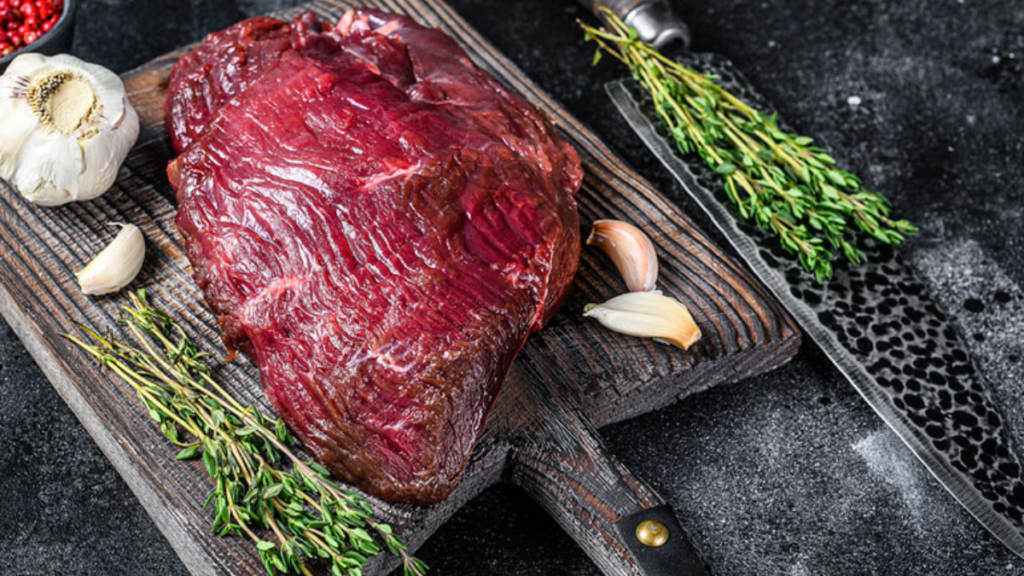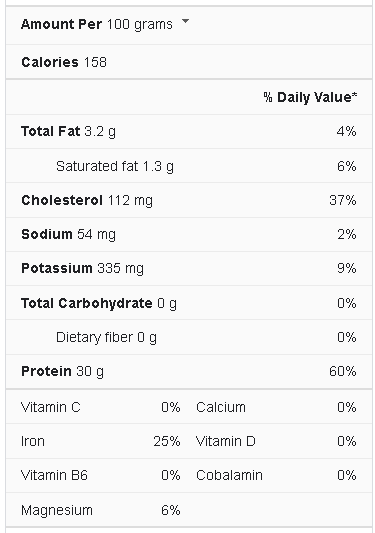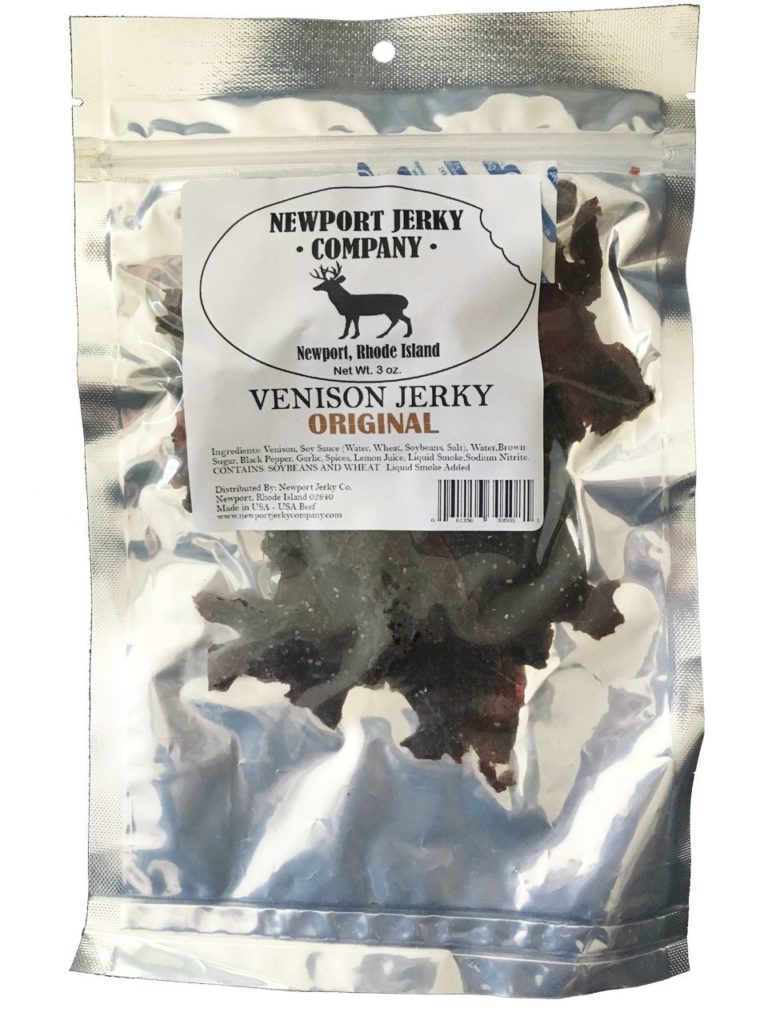Venison is a type of red meat made from the meat of a deer. Even though it is not as popular as traditional meats like beef, chicken, and pork, sales have increased in the Western world in recent years. Venison nutrition facts content and the fact that it is more environmentally friendly than factory-farmed beef are two reasons for its growing appeal. It is notably high in zinc, and it also contains tiny to moderate levels of the majority of other minerals.
Venison contains a large number of B vitamins. Both B12 and 6 are present, and these nutrients are crucial for the ever-so-slightly important aspect of brain health (among other things). As a result, deficiency can affect mood and cause depression symptoms. B vitamins are essential for energy production and can affect everything from our hair to our digestion.
Venison Nutrition Facts
What is Exactly Venison?
With the rise of commercial ranching, venison, which refers to deer meat in general, became more popular among American diners. Pasture-raised venison lacks the “gaminess” traditionally associated with hunted deer, and it has made its way onto restaurant menus across the country, raising gourmet awareness. Thanks to its short, thin muscle fibers, deer flesh is robust but tender, with a silky texture.
Because venison is relatively lean, don’t overcook it, or you’ll end up with a dried-out piece of meat. The grill is ideal for grilling venison steaks because of the high heat and rapid cooking times. Because venison is low in fat, it sticks to the grill, so spray the steaks lightly with oil before placing them on the hot grill. Venison steaks don’t need marinating, but they can be.
What are the Health Benefits of Venison?
There are several benefits of eating venison, mostly revolving around the meat’s nutrients.
Promotes Weight Loss
Venison meat is high in protein and low in calories, making it an excellent addition to your diet if you’re trying to lose weight. Ghrelin, the hormone that stimulates hunger, can be reduced by eating protein. Certain studies have also shown a high-protein diet increases metabolism while decreasing appetite and intake.
Helps Prevent Anemia
Anemia is a disorder in which your body lacks sufficient healthy red blood cells. Anemia symptoms include fatigue, dizziness, pale complexion, and a rapid heartbeat. Although there are a variety of circumstances that can cause anemia, deficiencies in critical vitamins and minerals are widespread. Vitamin B12 insufficiency and iron deficiency can decrease red blood cell synthesis and contribute to anemia.
Venison is an excellent source of these nutrients, with each three-ounce serving supplying 33 percent of your daily vitamin B12 needs and 16 percent of your daily iron needs. Including a few servings of deer meat in your weekly diet can help you satisfy your micronutrient requirements and avoid anemia.
Strengthens the Immune System
Zinc is abundant in deer meat, with just one three-ounce meal providing 29% of your daily zinc needs. It is an essential element important for many parts of your health, especially your immune system. Zinc is necessary for immune cell proliferation and growth and prevents oxidative stress induced by inflammation, and it may also protect from certain conditions. According to a study published in the Annals of Nutrition and Metabolism, an appropriate intake of zinc can lessen symptoms and shorten the duration of respiratory infections like the common cold. It could also help treat diseases like malaria, pneumonia, and diarrhea.
Promotes Muscle Growth and Recovery
Venison is high in protein, which is necessary for the body’s tissue growth and repair. Protein is a building block for bones, skin, cartilage, and muscles; therefore, getting enough in your diet is essential to growing muscle mass. Aside from being high in protein, deer meat also contains L-glutamine, an amino acid that has been demonstrated to help muscle rehabilitation. Supplementing with L-glutamine was demonstrated to speed recovery and reduce muscular soreness after exercise in 16 participants in a study conducted by the School of Health and Human Performance, Division of Kinesiology at Dalhousie University in Canada.
Sustainable Source of Protein
Deer meat is one of the best protein sources you can include in your diet. In fact, the protein composition of venison and beef is nearly comparable, with roughly 30 grams of protein in 100 grams, making it a fantastic addition to a high-protein, healing diet. Protein is required for the synthesis of various enzymes and hormones, as well as the foundation of your hair, skin, and nails. Protein insufficiency can have major repercussions, ranging from slowed metabolism to lowered energy levels and mood. Meat is not only high in protein but it is also regarded as a more sustainable source of protein. Deer overpopulation is a severe issue that can result in crop and landscape damage. Deer hunting is a strategy to keep deer numbers in check and reduce the potential for environmental damage.
Supports Brain Health
What you eat has a significant impact on your brain’s health. Venison has vitamins and minerals that have been proved to assist increase cognitive function, memory, and focus, making it one of the most significant brain foods available. Vitamin B12, for example, has been demonstrated to help with memory and learning. In studies, niacin has also been shown to protect against cognitive decline and the onset of neurodegenerative diseases such as Alzheimer’s disease. Deer meat also contains a significant amount of vitamin B6, which can improve mental health and promote happiness.
Venison vs. Beef: Which is Healthier?
Venison is a leaner meat than beef, and deer are inherently slimmer than cattle since they are wild and grass-fed. A 100 grams of venison with the fat removed contains about 158 calories and 3.2 grams of fat. Per ounce of beef, that’s only 1 gram of fat.
A 100 grams portion of beef sirloin roast, on the other hand, contains 250 calories and 15 grams of fat. Per ounce of beef, that’s twice as much fat. However, due to the leanness of ground venison, it can readily dry out when cooked. To add moisture to ground venison, many butchers add beef fat, and it’s not uncommon for 5 to 10% beef fat to be used.
Venison Protein vs. Beef
Venison is richer in protein than other red meats, which will fill you up and keep you sated longer. A 100 grams per serving of venison has 30 grams of protein, while beef has 26 mg of protein.
Is Venison More Expensive Than Beef
Venison is often less expensive than beef, depending on the year and where you live. Ground beef costs around $4.50 per pound, whereas ground venison can cost as little as $1.00.
Where to Find and How to Use Deer or Venison Meat?
Are you looking for venison but don’t know where to get it? While venison may be challenging in your local supermarket, it has become more commonly available in recent years. Many specialized stores and butcher shops sell deer meat, and if they don’t, they can usually custom order it for you. Several internet sellers will mail it frozen straight to your door if you’re having trouble finding venison.
The flavor of deer meat is described as deep and earthy, with a more intricate texture than other meats such as beef. Although some people avoid venison because it is said to taste gamey and rough, it all boils down to how it is prepared.
Deer meat tastes best when cooked slowly and slowly since it is a lump of relatively lean meat. Two typical cooking methods for bringing out its distinct flavor are braising and stewing. Before cooking, soak the flesh in water, vinegar, or buttermilk to remove the blood and lessen the gamey flavor.
Many of your favorite meals may easily be made with deer meat. Jerky, chili, stew, and venison roast are just a few ways to prepare this healthy meat.
Features:
- No Antibiotics
- No Growth Hormones
- No Steroids
- No Artificial Colorings
- Made in the USA
Conclusion
Elk, reindeer, caribou, and antelope are all members of the deer family, and their meat is known as venison. It has a similar but more prosperous, earthy flavor to beef but is lower in calories and fat. Many vital elements, such as vitamin B12, zinc, and niacin, are abundant in deer meat. It’s a stable source of protein that can aid weight loss, improve cognitive health, increase immunity, support muscle growth and recovery, and avoid anemia. Venison is a healthful supplement to a well-balanced diet and may be readily incorporated into some of your favorite recipes.
Although venison is generally thought to be a safe and healthful option for many other forms of meat, there are some risks associated with consuming deer meat. To begin with, despite its numerous health benefits, venison is still classified as a slice of red meat. Excessive consumption of red meat has been linked to an increased risk of various diseases, including heart disease and cancer. While it’s OK to indulge now and then, limit your intake of red meat and balance it with a healthy diet.




